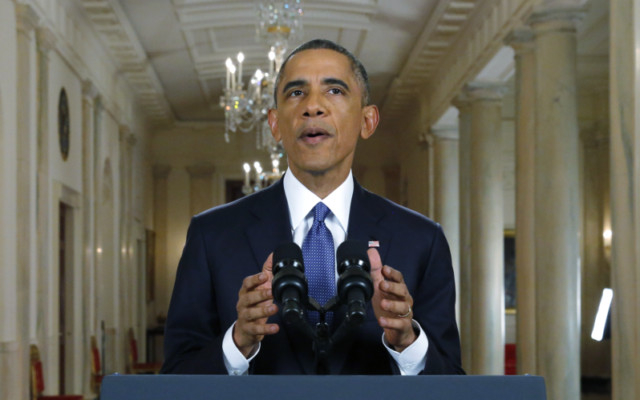
Let us be clear: The executive action that President Barack Obama announced on Thursday night is not a real fix for the broken US immigration system.
It is a naked political manoeuvre that he hopes will shore up support for Democrats among Latino voters and re-energise the party’s base after its beating in the elections earlier this month. Obama may not be wrong to think that this is good politics. Whether he is right depends on how Republicans respond to his announcement. So, they should tread carefully.
First, Republicans should remind Americans that the president’s executive action is nothing more than another short-term patch that arguably makes it less, not more, likely that Congress will ever pass permanent reforms. In accounts of Obama’s proposed executive action, there has been no clear plan for truly boosting border security; no effort to hold employers who hire illegal immigrants accountable; no repair of America’s broken visa system for these seeking to come to the US legally; and, perhaps most significant, no permanent resolution of the legal status of the 11 million people who came to the US unlawfully. In fact, the next president could easily wipe away whatever relief illegal immigrants may receive through any Obama executive action.
Second, Republicans should do everything they can to avoid a government shutdown in response to the president’s announcement. They are right to express, through the legislative process, their concerns over the legal issues and policies in the president’s action, but they should not hand him a political victory by failing to finance the government.
A more targeted effort — such as the alternative floated last week by House Appropriations Committee Chairman Hal Rogers of Kentucky — would be the better approach. Rogers suggested that Congress could first pass an omnibus funding bill that would ensure the government remains open and then pass “rescissions” bills in the next Congress that would defund specific agencies or government operations directly related to carrying out the president’s plan.
Another option, which my Bloomberg View colleague Ramesh Ponnuru discussed in a recent column, would be to pass two separate funding bills — omnibus legislation to finance the vast majority of the federal government’s operations and a measure focused only on the few offices responsible for carrying out the president’s order. The narrower bill would include an explicit prohibition on implementing Obama’s executive action. This division would force Democrats into a corner: Either accept the prohibitions on carrying out the president’s executive order, or get blamed for a government shutdown.
Regardless of the approach, Republicans should see to it that spending levels specified in any omnibus legislation are responsible ones. But either of these options enables Republicans to avoid a shutdown while also undercutting Obama’s efforts.
Finally, Republicans should not abandon the idea of passing some immigration legislation early in the 114th Congress next year. There is disagreement within their ranks on how to handle the immigrants who are in America illegally. But on policies where agreement exists, Republicans should act. By putting permanent changes in place, they would be offering a welcome contrast to the president’s temporary action.
If border security is a prerequisite, Republicans can start there, putting stricter measures in place. They can then move to further increase the number of visas for high-skilled workers and improve the current guest-worker laws. There is also likely agreement on granting legal status to some of the “Dreamers” who were brought to the US illegally as children.
While I continue to believe it is in the Republicans’ best long-term interest to reach consensus on the status of illegal immigrants currently in the US, the party’s leaders should not allow disagreement on this issue to derail legislation on other important policies. Obama has made his move and Republicans should respond by enacting reforms. By doing this, they place the onus on Obama, daring him to use his veto power to reject sensible measures that rationalise the process of coming here legally, protect the US economy and preserve the rule of law.
By deciding to move ahead with executive action on immigration, the president is jeopardising the possibility of bipartisan cooperation in the next Congress. But Republicans have the opportunity to demonstrate that they can and will govern, regardless of what Obama does. The accomplishments that result from their efforts could cause the president’s cynical, go-it-alone manoeuvre to backfire — and help Republicans win back the White House in 2016.
— Washington Post
Lanhee Chen is a Bloomberg View columnist. A research fellow at the Hoover Institution who also teaches public policy at Stanford University, he was the policy director of Mitt Romney’s 2012 presidential campaign.












